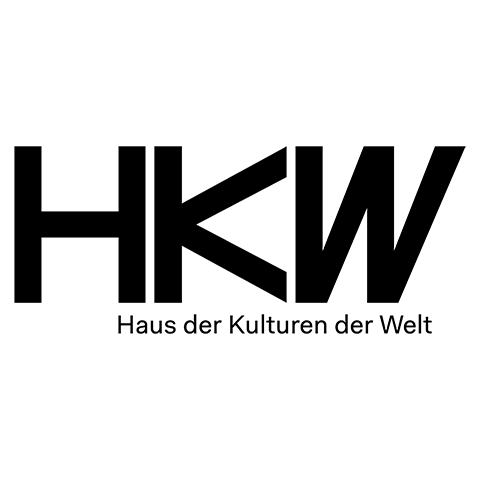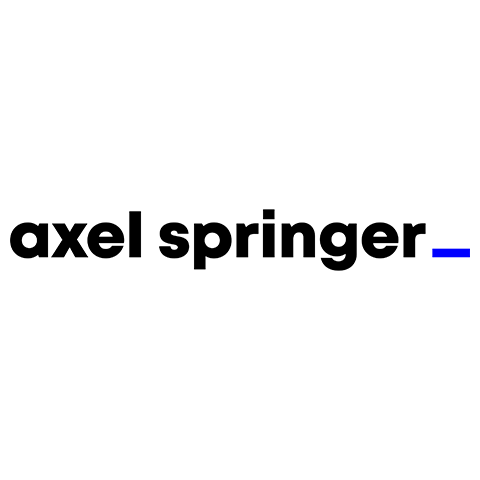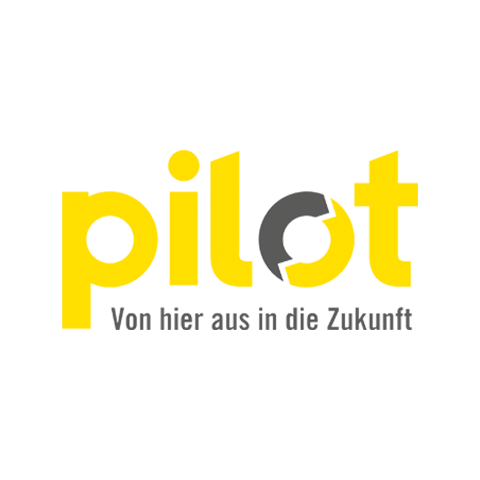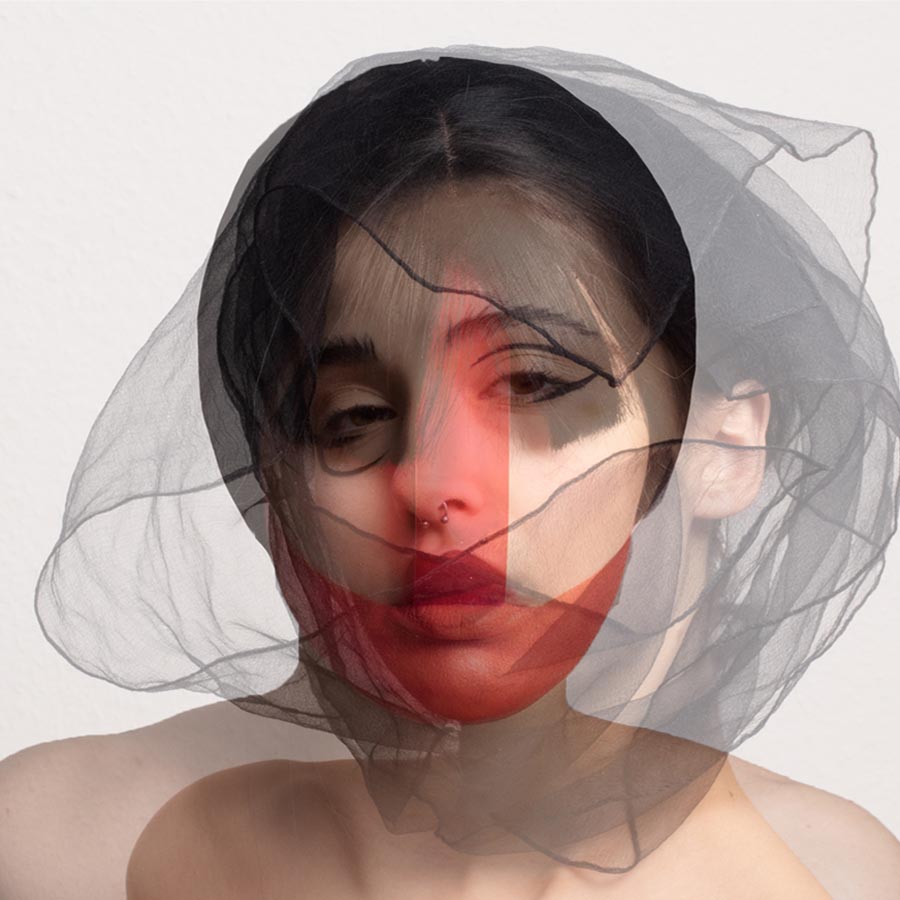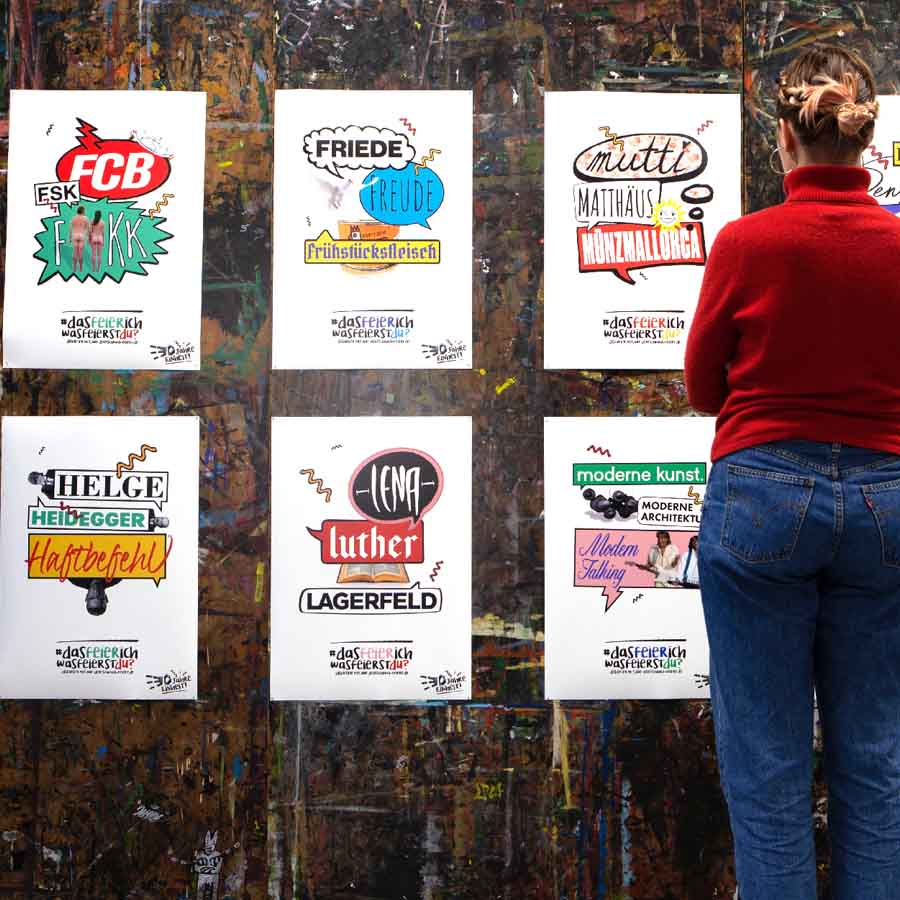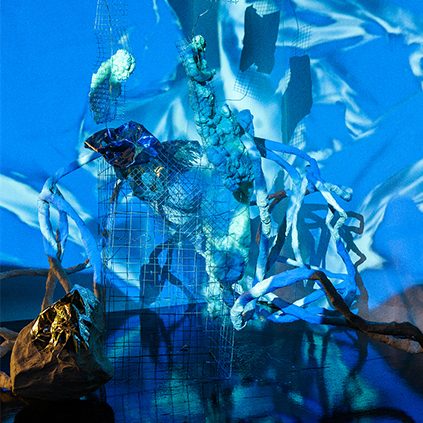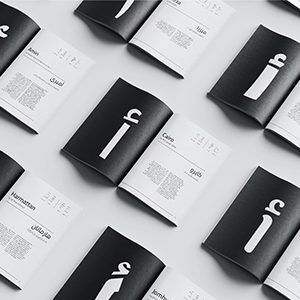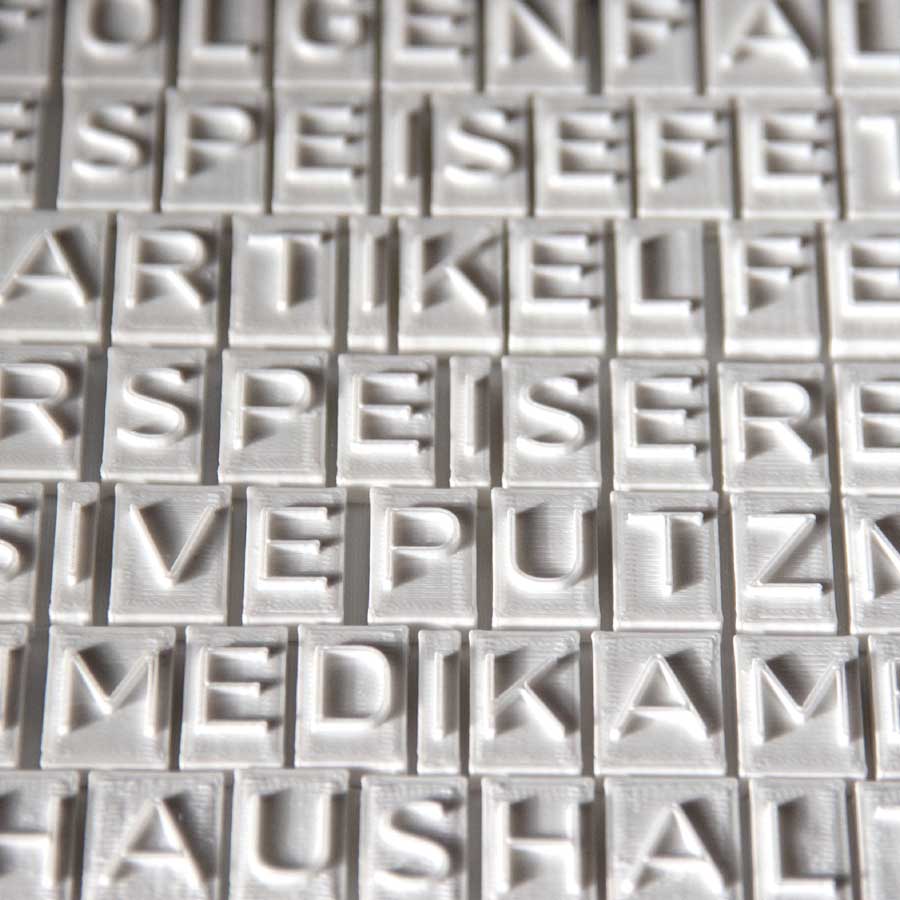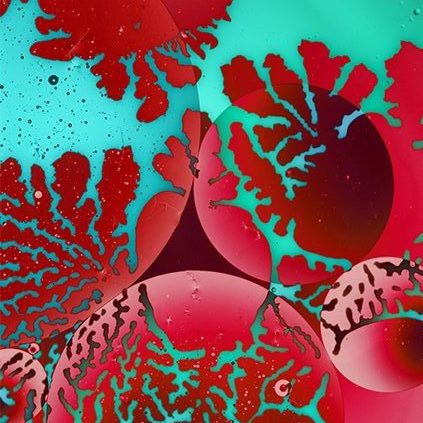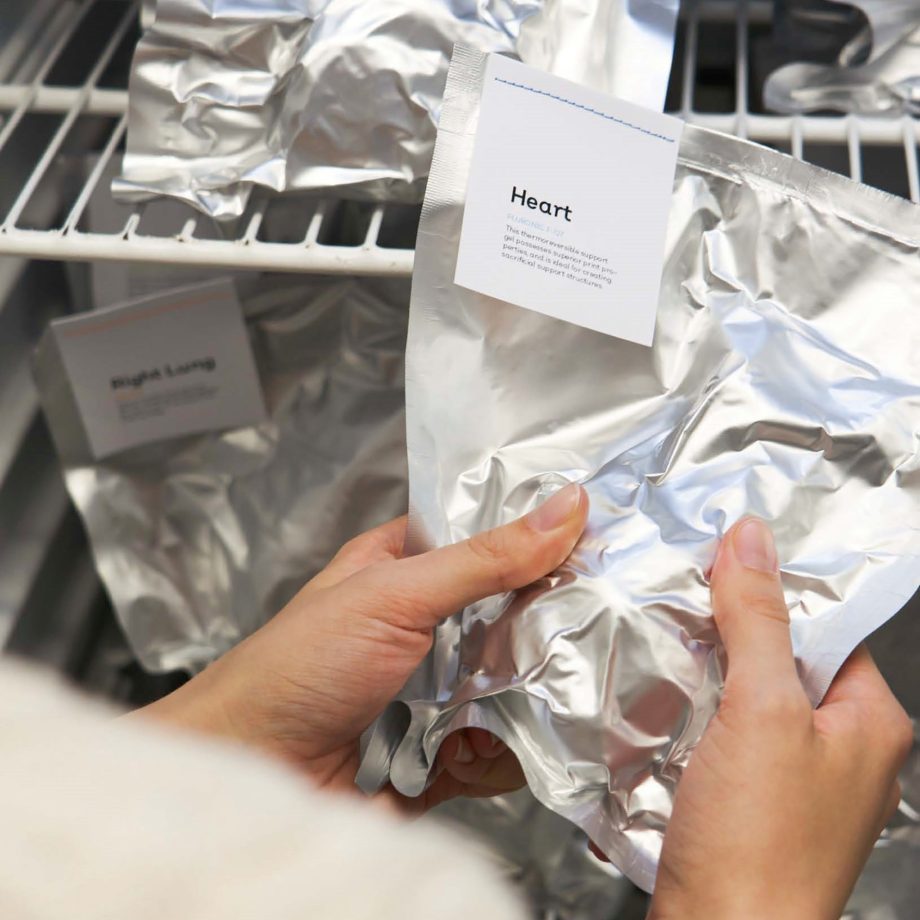
Master your creative journey
The degree programme combines the fields of art and design with culture and humanities. Social, economic, political and institutional issues are addressed and reflected upon using a wide range of academic discourses that support and enhance the design process. This enables graduates to actively participate in the development and shaping of globally interconnected cultures, manifesting the importance of the designer’s role in the global community.
Photo by Jennifer Lang
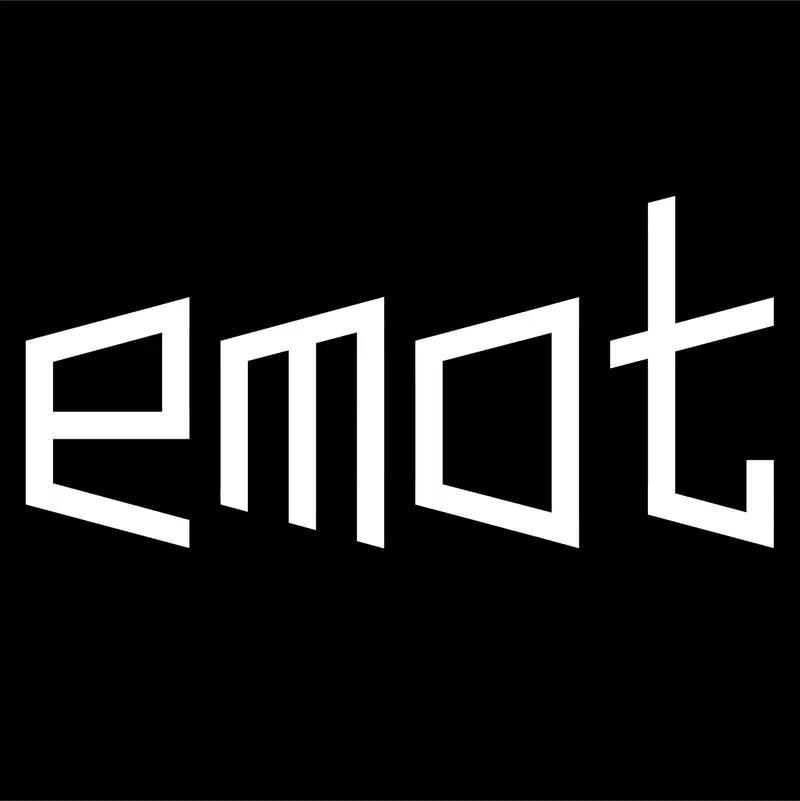
Curriculum | Communication Design
Video by Alexis Stylianou
Download Curriculum 60 ECTS Download Curriculum 90 ECTS Download Curriculum 120 ECTSKey facts MA Communication Design
Check out our Location
Take a look at our Campus Berlin.
Immerse yourself in a city full of culture, diversity, and opportunities!
Check out our Virtual Campus Tour.
Admission Requirements
Here are some things you will require for your application at the UE:
- Completed admission form
- Transcript & language proficiency
- CV & Copy of passport
- Motivational letter
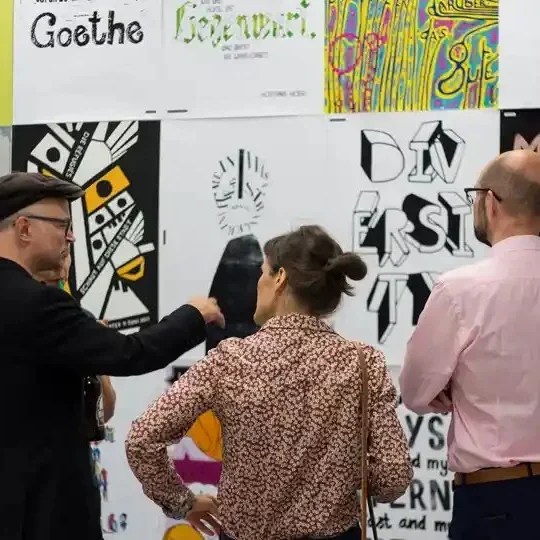
Semesters & Credits
- 2, 3 or 4 semesters
- 60, 90 or 120 ECTS (Credits)
- Choose between the Standard Track (120 ECTS) and the Fast Track (60 or 90 ECTS) study options based on your previous education.
- Teaching language: English
- Classes are typically scheduled between Wednesdays & Saturdays
Examination and Study Regulation
The programme starts in both the winter and summer terms.
Hear from Professor Christoph Büch as he gives an overview of our master’s programme at UE in Berlin.
Fees
- from € 1,046 per month
*Speak to one of our student advisors about available savings and financial support.
Got questions about financing? Check out our fees!
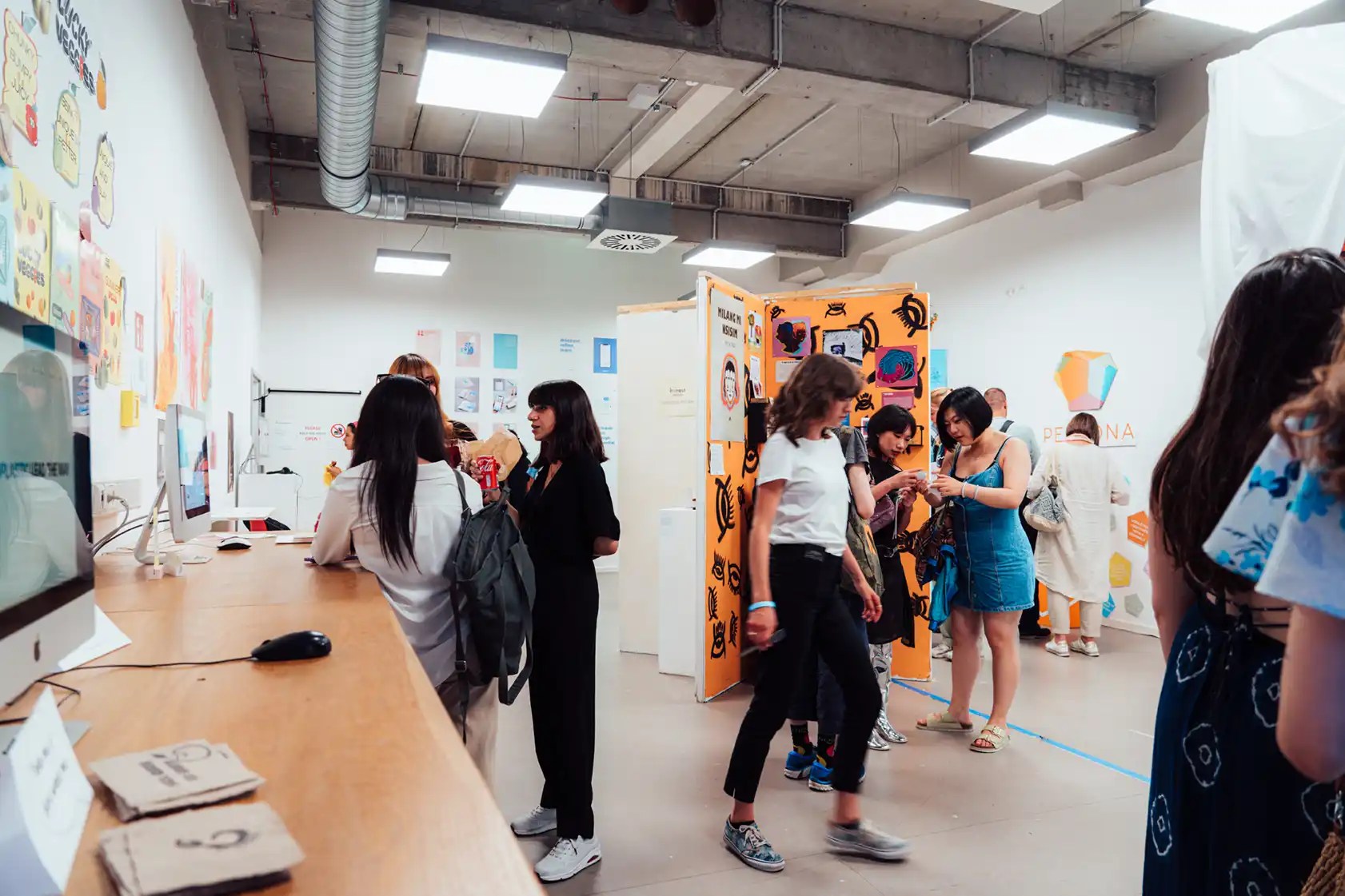
Career options with a degree in Communication Design
Graduates take on a variety of roles in contemporary design around the world. They will graduate with the skills for the following professions or industries, such as Creative Director, Design Studio Founder, Researcher, Entrepreneur, Cultural Manager, Project Manager, Lecturer, Senior Designer, Curator, Museum Assistant, Public Relations Worker, Marketing Manager, UX Designer, Publishing Editor and Artist.
The degree category Master of Arts allows students to pursue an academic career path, including doctorate and post-doctorate qualifications.
Our master’s programme Communication Design is the ideal next step for students who have completed a BA programme in Art & Design and wish to broaden and deepen their knowledge, exploring new perspectives. The degree prepares students for careers in both traditional professional roles within art and design, as well as emerging fields for communication designers in the 21st century. It is also suitable for students with backgrounds in business, humanities, cultural studies, media studies and science and technology studies (STS).
The programme – courses and projects
The core focus in the first and second semesters will be on the historical developments of art and design up to the present day. You will analyse visual communication within philosophical, economic, and social discourses, and explore the organisation of work in digital economies. These modules include practical assignments.
The third semester shifts the focus to contemporary discourses in art and design, with particular attention to design theory and the question of design’s autonomy as a knowledge culture. Additional topics include cultural and transcultural studies as well as ethics.
Throughout the programme, we place strong emphasis on interdisciplinary approaches. These range from the design of speculative scenarios to the promotional use of drone displays, from storytelling to theory development, and from initiating design processes to successfully implementing them within institutional and economic contexts.
Our goal is to cultivate creative individuals capable of shaping communication processes across political, economic, scientific, and social landscapes—both locally and globally.
A wide range of theoretical perspectives is introduced to help students recognise and navigate the cultural and ethical challenges posed by globalisation and digitalisation. As part of this, students will develop their own practical projects (Capstone Project) and demonstrate their acquired knowledge through a final thesis.
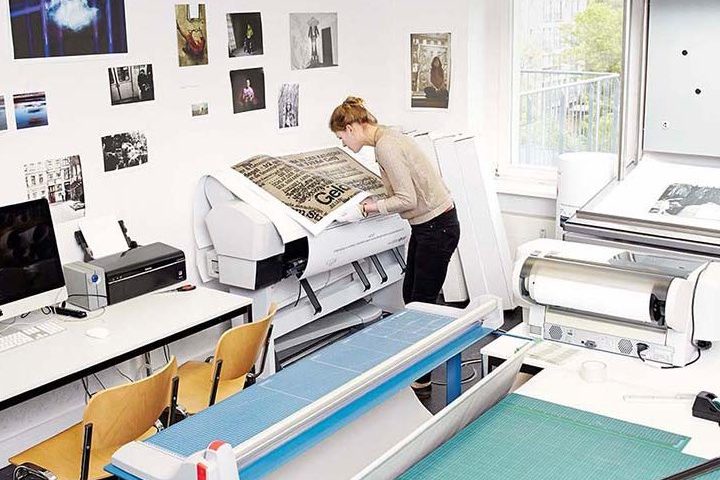
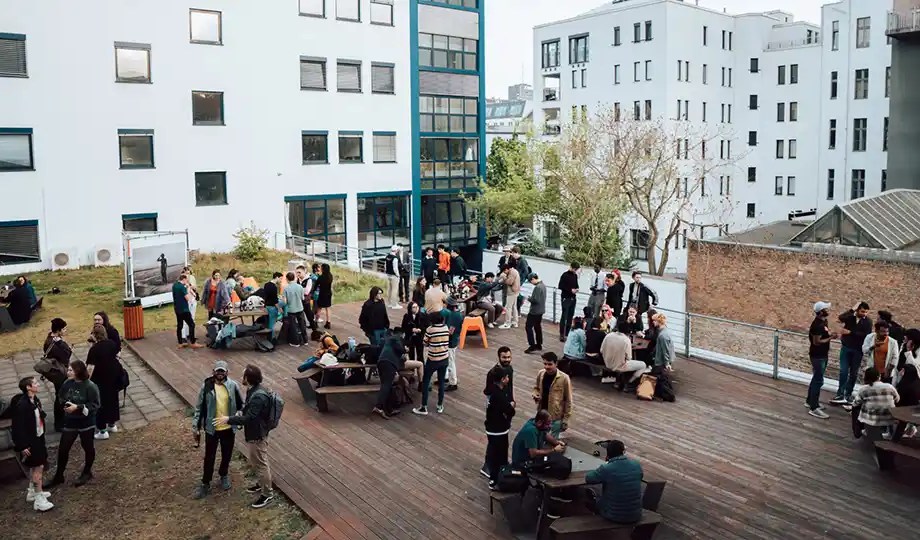
Study in Berlin — the centre of creativity and boundless opportunities
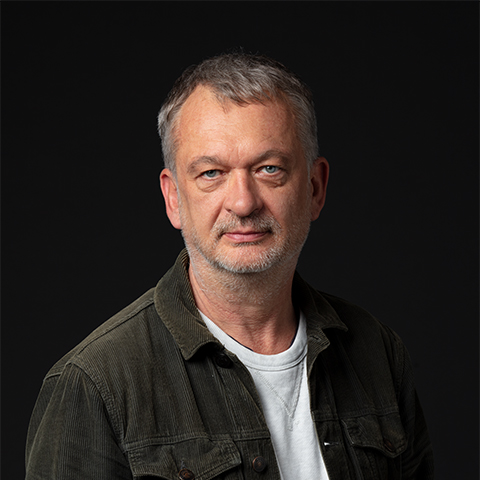
– Prof. Christoph Büch
Industry Collaborations: Building Bridges to Success
Inspiring Creativity: Student Projects Showcase
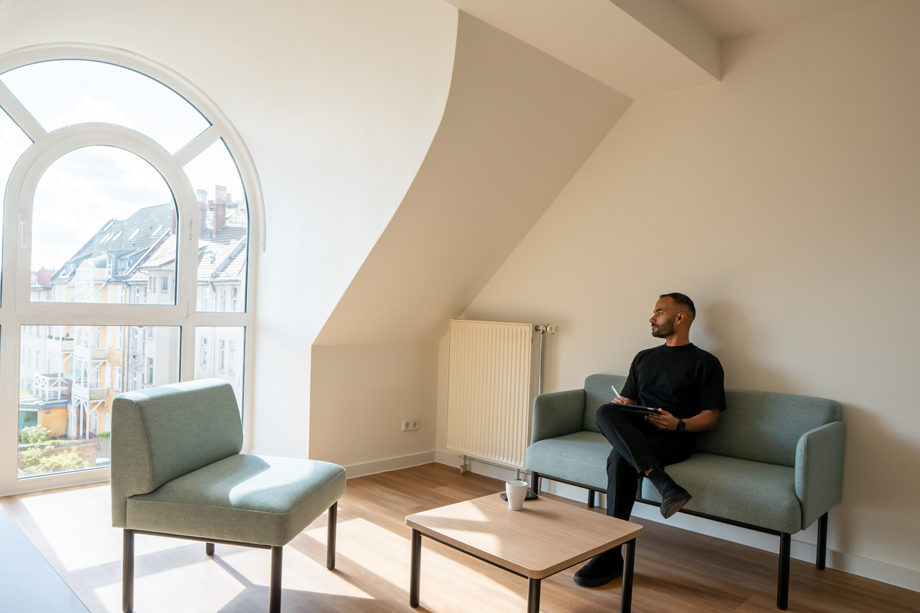
Why Choose Edge Student Hub?
- Modern, fully equipped accommodation options
- Prime location in Zossen, with direct access to Berlin
- Comprehensive facilities including communal kitchens, study areas, and more
- Vibrant community and secure living spaces
- Check out the virtual tour here!
Learn from our Experts
Here you will find further valuable information about our professors and their career.


